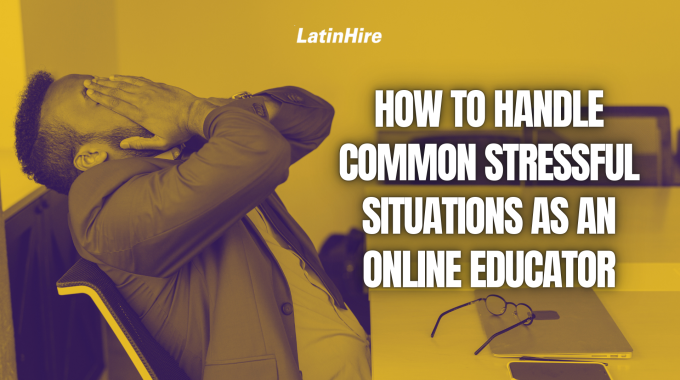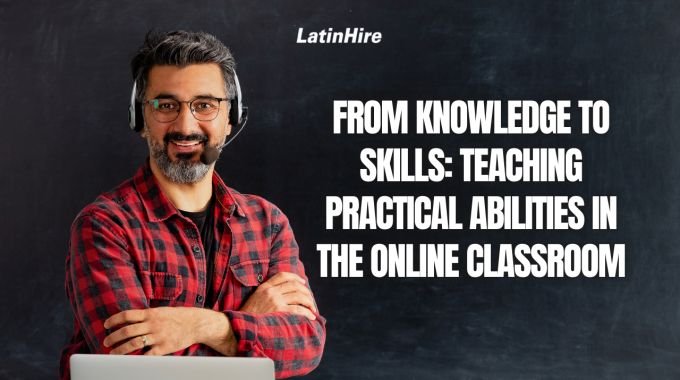Yesterday (March 9, 2025) marked the start of daylight saving time (DST)—a potential headache for…

How to Handle Common Stressful Situations as an Online Educator
Teaching online comes with many advantages, such as flexibility and the ability to work from anywhere. However, it also involves unique challenges that create stressful situations.
Whether it’s dealing with unresponsive students, technical difficulties, or last-minute schedule changes, online educators need effective strategies to maintain their composure and professionalism.
In this article, we’ll explore five common stressful situations that online teachers face and provide actionable solutions to handle them with confidence and grace.
1) Unresponsive or Disengaged Students

Imagine you’re teaching a lesson, but your student isn’t participating or only gives one-world responses. In these situations, try to ask open-ended questions that require more than a yes/no response. Make the lesson relevant to your students’ interests and incorporate real-world examples or gamified activities (check out our last week’s article about gamification ideas!) If disengagement continues, reach out privately to the student and check if there’s an underlying issue you might be able to help with or recommend external support.
2) Technical Issues
It’s not uncommon that during an online class, internet connections drop, microphones stop working, or the platform you’re using crashes mid-lesson. The best way to be prepared for these types of problems is to have a backup plan, such as an alternative video conferencing platform or backup headsets. It’s important to maintain a calm demeanor and reassure students that issues happen and you’ll work through them together. If the technical issue persists, communicate with the student or their parents to ensure they have a stable setup for future classes.
3) Last-Minute Cancellations or No-Shows

If a student doesn’t show up to class, or cancels at the last minute, it disrupts your schedule and can be quite annoying. To avoid these situations, establish a clear cancellation policy and communicate it upfront. Use automated reminders through email or text to reduce no-shows. If it happens frequently, consider charging a cancellation fee or requiring prepayment. If no-shows happen, you can also consider using that time productively, such as lesson planning, organizing materials, or catching up on readings.
4) Difficult Students or Parents
There are times when you may have to deal with a student who is rude, resistant to feedback, or refuses to cooperate. Alternatively, a parent can be overly demanding or questions your teaching methods. It’s a good idea to set clear expectations for behavior from the beginning. Stay professional and avoid engaging emotionally in conflicts. If a student is uncooperative, try a different teaching approach that suits their learning style. When dealing with parents, communicate progress regularly and provide constructive feedback to keep them in the loop.
5) Feeling Overwhelmed with Workload

Online educators can often feel stressed and exhausted as they juggle multiple students, lesson planning, grading, and administrative tasks, on top of their personal life and other commitments. The best way to handle overwhelm is to set boundaries by deciding on work hours and sticking to them. Use scheduling tools to automate bookings and set reminders. Plan lessons in advance and create reusable resources to save time. Take breaks, practice self-care, and engage in activities that help you recharge.
Stressful situations are inevitable in online teaching. By staying prepared, maintaining professionalism, and implementing proactive strategies, you can navigate challenges smoothly and continue delivering high quality lessons.
What are some stressful situations you’ve faced as an online teacher? Share your experiences and strategies in the comments below!



